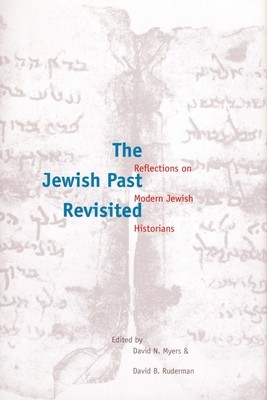
- We will send in 10–14 business days.
- Publisher: Yale University Press
- ISBN-10: 0300191537
- ISBN-13: 9780300191530
- Format: 15.2 x 22.9 x 1.5 cm, softcover
- Language: English
- SAVE -10% with code: EXTRA
The Jewish Past Revisited (e-book) (used book) | bookbook.eu
Reviews
Description
In this fascinating new collection of essays, contemporary historians examine the ways earlier historians have framed, written, and "made" the Jewish past. Probing the ideology and methodology of their professional predecessors, American and Israeli historians offer new perspectives on some of the central figures of twentieth-century Jewish historiography, including Gershom Scholem, S. D. Goitein, Yitzhak Baer, Elias Bickermann, and Cecil Roth, as well as the Israeli "New Historians." Although the lives and work of these scholars differ in many ways, Jewish historians have recurrently confronted the challenges posed by assimilation, antisemitism, and various forms of nationalism. Through their critical examinations of the construction of the Jewish past, the contributors to this volume develop important insights into current attitudes toward the dominant canons and ideals of historical scholarship and the future of historiography. They shine new light on the formation of a historical worldview and the "making" of history.
EXTRA 10 % discount with code: EXTRA
The promotion ends in 15d.02:49:17
The discount code is valid when purchasing from 10 €. Discounts do not stack.
- Publisher: Yale University Press
- ISBN-10: 0300191537
- ISBN-13: 9780300191530
- Format: 15.2 x 22.9 x 1.5 cm, softcover
- Language: English English
In this fascinating new collection of essays, contemporary historians examine the ways earlier historians have framed, written, and "made" the Jewish past. Probing the ideology and methodology of their professional predecessors, American and Israeli historians offer new perspectives on some of the central figures of twentieth-century Jewish historiography, including Gershom Scholem, S. D. Goitein, Yitzhak Baer, Elias Bickermann, and Cecil Roth, as well as the Israeli "New Historians." Although the lives and work of these scholars differ in many ways, Jewish historians have recurrently confronted the challenges posed by assimilation, antisemitism, and various forms of nationalism. Through their critical examinations of the construction of the Jewish past, the contributors to this volume develop important insights into current attitudes toward the dominant canons and ideals of historical scholarship and the future of historiography. They shine new light on the formation of a historical worldview and the "making" of history.


Reviews